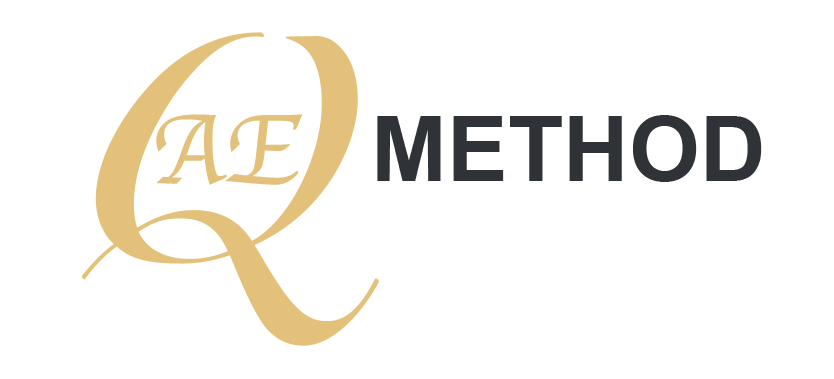Only persistent, conscious, attentive, and curious exploration and an easier way to perform the movement and effectively express emotions eliminates pain and changes thinking.
Sensory-motor amnesia and a lack of time force people to divert their attention to the future or past.
Only persistent, conscious, attentive, and curious exploration and an easier way to perform the movement and effectively express emotions eliminates pain and changes thinking. Our conscious control and efficiency increases; we use our time and energy better.
The changes in lifestyle that came with the modern age were mainly due to the steam engine’s invention and later related inventions. With the Industrial Revolution, the developed part of the planet easily converted the energy of wood and fossil fuels into motion. It was thus less dependent on the energy it drew from food to do the work.
More and more work was accomplished with the help of machines and devices. As a result of these changes in energy utilization, there have been gradual changes in a person’s consciousness regarding awareness of the importance of one’s energy. To survive before the Industrial Revolution, one had to be physically efficient and capable of completing all given tasks with the least effort or with the most imagination. If a man used more energy than he gained, he was in big trouble and threatened his survival.
For proper efficiency and ingenuity, it was necessary to observe, test, think, and learn. Using time efficiently is not so important, as opposed to using energy efficiently. A conscientious attitude towards movement and orderliness required more time and attention, so life’s pace was much slower, the lightness and thoughtfulness of movement and actions much greater.
The natural environment, which was not adapted to man, most often unfriendly, required a lot of attention and adaptation from the man of that time. The transfer of knowledge and skills from generation to generation was very important, and most of the learning was long-term and never ended. Humanity had to adapt and respect nature most of the time since his rules were only in effect in certain areas (villages, cities), but not outside them. The development of human-friendly environments depended on man’s work and ability to convert food into motion and the ability to uphold that. Therefore, a higher order of the environment was achieved mainly through prisoners of war or slaves.
With the Industrial Revolution, the developed part of the planet easily converted the energy of wood and fossil fuels into motion. It was thus less dependent on the energy it drew from food to do the work.
The Industrial Revolution eventually changed inefficient energy and time usage in the developed part of the world. Due to machines’ dominance, people were left with plenty of leftover energy, and time became more valuable. Machines don’t feel fatigue and tired. But they have sped up work, which became an important factor in a man’s life. Faster work done by machines forced people to speed up their movement and work.
Resentment, hatred, self-pity, feelings of guilt, anger, jealousy, fear of the future are forms of pain.
The limitations imposed by the human body concerning the conversion of food into movement could be avoided with technology development. The main guideline was still how to get more with less, but the way to accomplish this has changed significantly over the last 300 years. The conscious part of our mind’s abilities was directed towards scientific development, which allowed us a more comfortable life. This, in turn, has fostered and made the conversion of energy into movement increasingly inefficient, resulting in a general lack of time to learn movement. Simultaneously, we pushed bodily sensations away from our consciousness since they were not as important for living in a human-tailored environment as before in the natural environment. The creation of increasingly large sensory-motor amnesia was this way inevitable.
Let’s take the automotive industry’s development: since the year 1885 to today, a giant leap was made in the change of converting the energy of the fuel into movement. The reason for such progress is undoubtedly the enormous amount of attention, imagination, effort, and energy invested. Tidiness, complexity, and accuracy have improved greatly, which brought comfort, safety, and reliability. Sadly, at the same time, the level of man’s efficiency in the modern world was rapidly declining.
Due to a higher amount of food, energy, and devices, that do our jobs for us, we have directed our attention, imagination, thinking, and effort towards better use of our time, which allowed us to gain a lot of energy. Without that, a change couldn’t have happened. We all know that faster driving decreases the time spent on the journey but greatly increases energy usage.
We can also do more and have more; we use more energy, time, and money, but not for learning how to use our energy more efficiently, especially because that efficiency is becoming less important with further technological advances.
Less physical work increases the importance of sports and the importance of consuming as much energy as possible in a short time (because we do not have time), which is in stark contrast to the functioning and evolutionary structure of our body, mind, and nature, of which our body and which as such must obey the natural laws of time and gravity.
The basis is to improve control over the ratio of energy consumed and movement/work performed.
Nor is it an insignificant fact that a man with poorer use of his energy is a much better consumer. Of course, bought machines that help him “live” also need to be maintained and upgraded. Uneconomic use of energy means poorer efficiency of the system; this means higher entropy, which the body draws attention to greater pain. If this is not taken into account, it leads to disease.
We can also observe the fact that the amount of energy invested in a man has increased. If all that energy went into improving the system’s efficiency and complexity, that would be a good thing and would bring higher orderliness and less pain. But instead, we use energy inefficiently and without control. We try to do too many things at once and are thus shallower and more dependent on technology. We begin to lose our focus due to haste, so mistakes are more common, which we have to fix ourselves or get someone else to do it. The work thus doubles. We move fast, and we travel a lot – so we spend a lot of time and energy.
The basic cause of the organism’s unnecessarily poor condition (pain, inappropriate or insufficient movement, too little sport or exaggeration in it, low motor and emotional intelligence), in the above statements. For good energy management, we need knowledge and imagination. Our systems’ limits for energy conversion into movement tell us how many moves we can perform in a certain timeframe without injuring ourselves.
But the options modern life offers us aren’t all bad. With good enough understanding of time and efficient energy use, it can make our life easier by a lot. Control over our life is much better if we take the time and focus on our energy. We use technology to our advantage only when its necessary and sensible. Learning the AEQ method allows us to feel and understand the meaning of coordination and orderliness of muscle movement to use one’s energy at the optimal time properly.
One of the mind’s main roles is removing the pain; despite it being the thing warning on disorder and entropy of both body and emotions.
But in recent years, the problem appeared due to technological development slowing down. Moore’s law, which stipulated doubling the number of transistors on a given surface every two years, is no longer valid, as technology is developed to the extent that microprocessor performance is increasingly affected by the laws of quantum physics, which requires drastic changes in technology and time.
People were able to “live normally” despite the reduced efficiency of movement due to increasingly efficient technology that maintained the necessary balance and was always faster in functioning and communicating with each other. Thus, a more orderly world made it possible to gradually reduce the role of the body and separate the mind more and more from the real ground with which it had had contact through the body in the past. Those who knew how to go beyond their real bodily abilities thrived better in such an environment than those who respected bodily limitations and had a good vertical ground-consciousness connection.
Such conditions have progressively increased the speed of life, which required ever-faster technology and led to a spiral of too-fast life with increasing energy consumption needed to raise GDP, and improved unrealistic relationships and unrealistic relationships. Overheating has been increasing energy losses in the human species system, which according to the laws of physics (the second law of thermodynamics), leads to collapse and requires events that force the system to change and stop and prevent previous imbalances.
Just as a pendulum pushed to one extreme point and unable to be held in, it swings to the other extreme. Corona.
Suddenly it all comes to a halt, and chaos ensues. Shock. It takes our breath so hard; some need a respirator. At their autopsies, doctors determine the condition of the lungs as if decompression sickness had occurred. Activities where the greatest burnout and unrealistic relationships such as tourism, air travel, travel, high-end sports, the entertainment industry are present, are most affected and lose their previous role and significance overnight.
Activities that were unproductive and required unnecessary amounts of energy have suffered the biggest changes. The virus has heavily impacted countries that spend the most energy on its population. I observed the same connections when working with my clients while analyzing their past.
A long period of exaggeration and disregard for bodily reality always leads to an event that forces a person into a drastic change in lifestyle.
Due to a higher amount of food, energy, and devices, that do our jobs for us, we have directed our attention, imagination, thinking, and effort towards better use of our time, which allowed us to gain a lot of energy.
It is important that the current experience provided by the virus allows us to know how economic growth must not reduce life expectancy, health, and a sense of satisfaction, but that economic growth must be the result of a better-interconnected functioning of the economy, technology, health and time that the person has available to himself and to strengthen his bodily consciousness.
It’s also good to know that a lack of time makes us rigid and inefficient in expressing our emotions and forces us to repeat the same mistakes in emotional relationships.
A person that has enough control over the energy of the movement performs moves swiftly and efficiently. They aren’t in pain to which they don’t know its cause and knows how to reduce and eliminate any pain that does appear. So, states of chronic problems and pain are not possible for them. For easy and effective movement, the amount of muscle itself is not important, nor is strength or fitness.
Observe the movement of children during playtime, their lightness, control, and purpose. You will never see a child that needs to catch their breath during playtime, as we can commonly observe in adults. A percentage of a child’s muscle mass compared to the one of an adult is symbolic. It is important to keep this in mind when we decide what to do to improve our mood, abilities, and quality of life.
Razvoj človeku prijaznih okolji je bil odvisen od človeškega dela in njegove sposobnosti pretvorbe hrane v gibanje ter vzdržnosti tega početja.
The basis is to improve control over the ratio of energy consumed and movement/work performed. And for that, we need time, a good enough connection between the body and consciousness, and the ability to direct our consciousness inside our bodies and not only towards our surroundings. It is also important to understand the role of time. If we are over-encumbered and do not have any time in our lives for whatever reason, we will not learn enough and put in too much effort to not bring the results we seek and create a misunderstanding as to why we don’t feel better.
Our job is to regulate our lives and accept the facts, what rules govern life and results, and for that, there are no shortcuts. This will give you an idea of why the results are as they are and what you can change to progress. Only we can change the situation step by step.
One of the mind’s main roles is removing the pain; despite it being the warning on disorder and entropy of both body and emotions. But in modern times, due to the lack of time to learn and due to the large selection of options (pills, therapies, …), the most a person can manage to do is temporarily cover the pain. This leads to the mind trying harder and harder to eliminate the pain, but it instead grows larger and turns into chronic pain. Thus, the mind cannot find a solution since the information vacuum becomes bigger, and the mind becomes an essential part of the problem. It’s like a detective trying to catch the killer despite him being the killer.
Thus, chronic pain can only be changed and eliminated by introducing change, which we cannot do if we do not know what we are doing. Pain is inevitable until we consciously regulate our energy consumption well enough, the lack of which is the main cause of physical pain and illness.
Resentment, hatred, self-pity, feelings of guilt, anger, jealousy, fear of the future are forms of pain. We are inefficient because of them, and we feel the weight of not having enough energy or time. We address this in the short term by increasing effort, which increases pain, both those that have been preserved from the past and the present. Sensory-motor amnesia and the lack of time force people to focus on the future or the past. Despite the only thing we have control of is the present, we know that there cannot be any improvements without change.
The only part of us that can change is the consciousness or the mind and thus can change our behavior if the muscular-fascial system is also involved in the process, which is increasingly difficult due to the relationships described above and the influences of the environment on us.
Fighting the pain only brings more pain; persistent, conscious, attentive, and curious exploration and finding an easier way to perform the movement and effectively expressing emotions eliminates pain and changes thinking. Our conscious control and efficiency increases; we begin to use our time and energy correctly.






